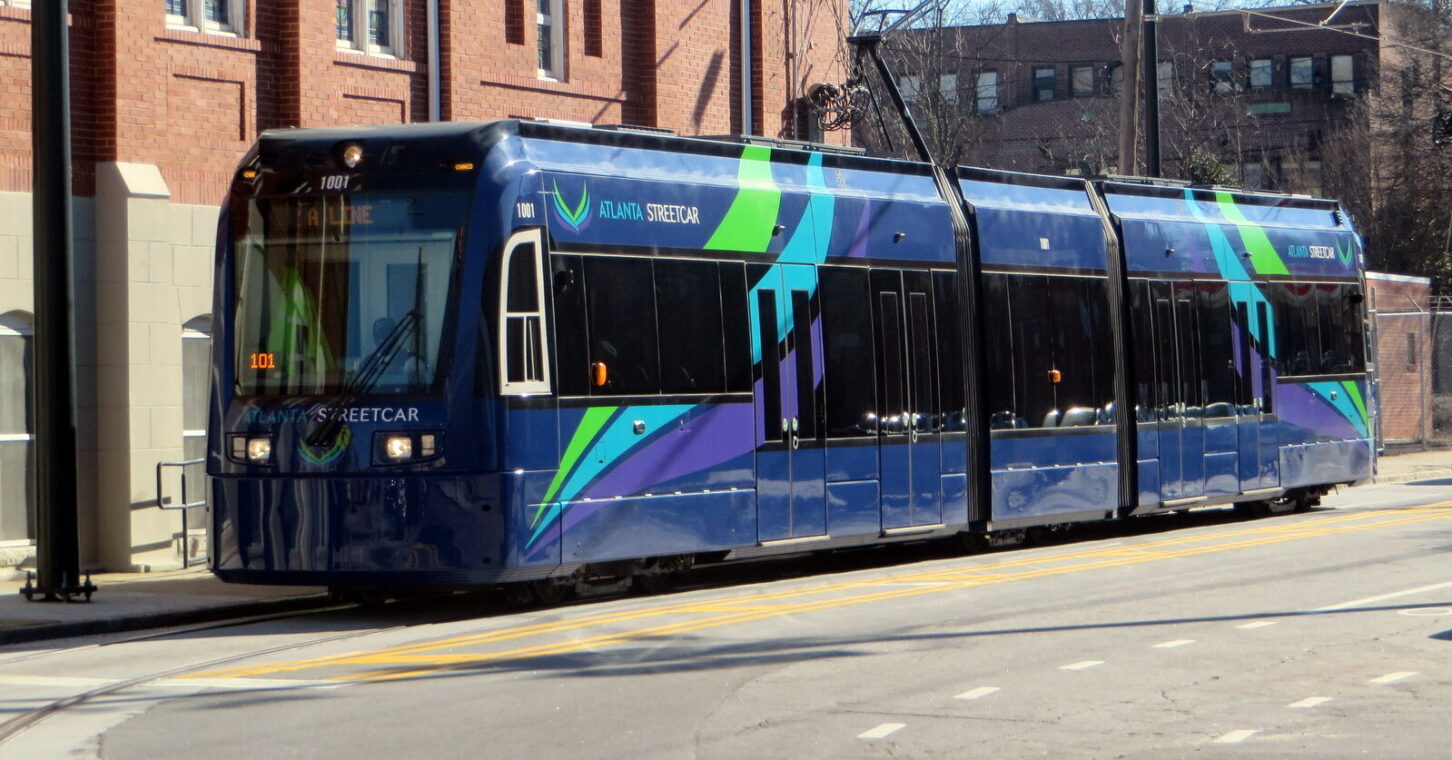
Some bad ideas just won’t go away.
MARTA released details last fall on a plan to extend its streetcar 2.5 miles to Atlanta’s Beltline. Previously, the Georgia Public Policy Foundation wrote in favor of MARTA’s decision to switch to Bus Rapid Transit (BRT) for the Campbellton Corridor, but unfortunately the streetcar seems to be a higher priority. The mayor’s office reaffirmed its support even as some MARTA officials voiced skepticism about further straining the agency’s budget on such a troubled project.
Costs rise while ridership is nonexistent
The first line of the Atlanta Streetcar system was implemented in 2015 and has been a terribly inefficient public transit program since its implementation.
The numbers speak for themselves:
- The cost of the first 2.7 miles exceeded estimates at $99 million, or $36.7 million a mile, in 2015. In 2023, estimated costs ballooned to between $88 million to $107.5 million a mile for the proposed expansion with total project costs ranging from $176 million to $230 million.
- Even when it was free, ridership was significantly below capacity, and now that the line costs $1 a ride, ridership has sunk to an average of 400 riders a day in 2022.
- The system has an average traveling speed of 5 mph. Considering the average human walking speed is 2.5 to 4 mph, it’s not unfair to say Atlanta’s streetcars are one of the slowest forms of public transportation available.
Organizations across the political spectrum like NPR, Reason and StreetBlogsUSA have critiqued Atlanta’s streetcar system for its higher construction costs compared to other forms of mass transit, longer construction time, abysmal ridership and slower travel speeds. Many residents living near the proposed streetcar line are against the expansion, and ridership of the extension is expected to be riders of choice, rather than people who need to use the lines out of necessity. One has to ask whether MARTA, with its current budget constraints that are causing scalebacks of public transportation projects, is using its limited public funds responsibly. Streetcars around Ponce City Market that will serve more affluent riders of choice should not be prioritized above BRT lines in lower income communities where residents rely on MARTA to get to work and do their grocery shopping.
Cost effective public transportation for all
Atlanta’s traffic is getting worse. Methods of public transportation that are cheaper to build, hold more passengers, travel faster and allow for people to avoid driving their cars in Atlanta will help traffic.
For main commuting arteries, our existing MARTA rail lines are great for commuters and can carry up to 500 passengers a train. They take a long time to build and are expensive to construct, but provide an affordable form of transportation for commuters and those without cars at $2.50 a single ride ticket or $95 for a monthly pass. With travel speeds around 30 – 45 mph, they offer a good solution for long distance commuting.
For smaller roads that have less demand or serve as connections between major areas, BRT offers a significantly cheaper construction cost and time compared to street cars with travel speeds around 20 – 30 mph. Buses can hold 50 to 60 passengers and can be easily scaled up or down with changing passenger demand. Considering MARTA has had a 60% reduction in ridership in the last decade, a mass transit option that allows MARTA to scale up and down with passenger demand is highly preferable.
One area where Atlanta really struggles is last mile commuting. Options like e-scooters, bikes, and walking need to be easier, cheaper, and more accessible. The expansion of the beltline has been a great project to help support walkability in Atlanta. We could do more at the state level to support private market solutions like short term rental bikes and scooters. Policy options like a regulatory sandbox to support new transportation companies within the city could allow more choices for everyone.
Rather than an expensive project that will serve a limited area and has limited demand by people living there, we should be looking at solutions that are a better fit for commuters of necessity, will actually reduce car usage within the city and be cost effective for taxpayers. Both BRT and MARTA rail lines offer vastly superior solutions to our transportation problems.

The Babylon Bee’s Seth Dillon will be the keynote speaker for our upcoming Georgia Freedom Dinner on April 25. You don’t want to miss this! Get your tickets now.
